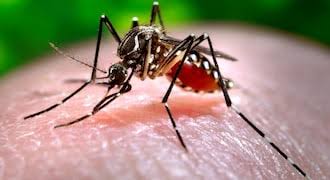Dengue and Chikungunya Cases Surge in Pune, Health Officials Sound Alarm

Pune, 4th September 2024: The prevalence of mosquito-borne diseases is rising in Pune city. Last month, an average of 38 dengue cases were detected daily, totalling 1,150 suspected cases. Additionally, 52 cases of chikungunya were reported in August. The simultaneous increase in dengue and chikungunya cases has raised concerns among health officials, prompting a focus on mosquito prevention measures.
In August, 1,150 suspected dengue patients were detected in Pune, with 82 confirmed cases. The number of diagnosed dengue patients was 5 in February, 3 in March, 2 in April, and 34 in July. The number of cases in August has more than doubled compared to July. In July, there were 636 suspected cases, whereas in August, there were 1,150. Dengue symptoms are similar to other viral fevers and include sudden fever, headache, body aches, joint pain, and pain behind the eyes. Other symptoms may include headache, loss of appetite, nausea, and abdominal pain.
Chikungunya cases have also increased, with a total of 52 cases detected this month, compared to 1 case in June and 24 in July. The number of chikungunya patients has doubled in the last month. Symptoms of chikungunya typically appear 3 to 7 days after being bitten by an infected mosquito, with an incubation period of 4 to 7 days. Symptoms include fever, chills, headache, nausea, vomiting, severe joint pain, and body rash. A common symptom is the bent posture of the patient. Chronic joint pain often persists during recovery from chikungunya.
Dr. Rajesh Dighe, Assistant Health Officer at PMC, stated, “There is no specific treatment for chikungunya. Treatment is based on symptom management. Painkillers and plenty of rest may benefit the patient. It is important to ensure that the sick person is not bitten by mosquitoes to prevent the disease from spreading to others.”
Tips to Prevent Mosquito Breeding
To prevent mosquito breeding, eliminate standing water where mosquitoes lay eggs, such as in buckets, flower pots, and old tyres. Regularly clean and maintain gutters to avoid water accumulation. Use larvicides in water features that cannot be drained. Ensure proper disposal of trash and avoid leaving containers outdoors. Keep rain barrels covered and check for leaks. Additionally, maintaining a well-trimmed yard and using mosquito repellents can help reduce mosquito populations and the risk of breeding.





